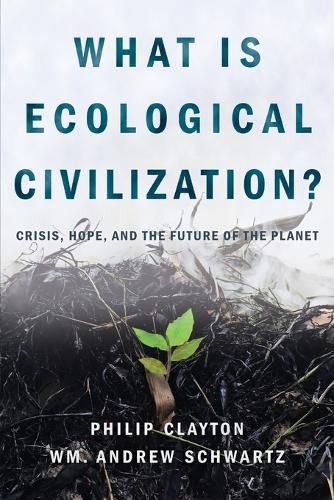Readings Newsletter
Become a Readings Member to make your shopping experience even easier.
Sign in or sign up for free!
You’re not far away from qualifying for FREE standard shipping within Australia
You’ve qualified for FREE standard shipping within Australia
The cart is loading…






This title is printed to order. This book may have been self-published. If so, we cannot guarantee the quality of the content. In the main most books will have gone through the editing process however some may not. We therefore suggest that you be aware of this before ordering this book. If in doubt check either the author or publisher’s details as we are unable to accept any returns unless they are faulty. Please contact us if you have any questions.
The present trajectory of life on this planet is unsustainable, and the underlying causes of our environmental crisis are inseparable from our social and economic systems. The massive inequality between the rich and the poor is not separate from our systems of unlimited growth, the depletion of natural resources, the extinction of species, or global warming. As climate predictions continue to exceed projections, it is clear that hopelessness is rapidly becoming our worst enemy. What is needed–urgently–is a new vision for the flourishing of life on this planet, a vision the authors are calling an ecological civilization. Along the way they have learned that this term brings hope unlike any other. It reminds us that humans have gone through many civilizations in the past, and the end of a particular civilization does not necessarily mean the end of humanity, much less the end of all life on the planet. It is not hard for us to conceive of a society after the fall of modernity, in which humans live in an equitable and sustainable way with one another and the planet. This book explores the idea of ecological civilization by asking eight key questions about it and drawing answers from relational philosophies, the ecological sciences, systems thinking and network theory, and the world’s religious and spiritual traditions. It concludes that a genuinely ecological civilization is not a utopian ideal, but a practical way to live. To recognize this, and to begin to take steps to establish it, is the foundation for realistic hope.
$9.00 standard shipping within Australia
FREE standard shipping within Australia for orders over $100.00
Express & International shipping calculated at checkout
This title is printed to order. This book may have been self-published. If so, we cannot guarantee the quality of the content. In the main most books will have gone through the editing process however some may not. We therefore suggest that you be aware of this before ordering this book. If in doubt check either the author or publisher’s details as we are unable to accept any returns unless they are faulty. Please contact us if you have any questions.
The present trajectory of life on this planet is unsustainable, and the underlying causes of our environmental crisis are inseparable from our social and economic systems. The massive inequality between the rich and the poor is not separate from our systems of unlimited growth, the depletion of natural resources, the extinction of species, or global warming. As climate predictions continue to exceed projections, it is clear that hopelessness is rapidly becoming our worst enemy. What is needed–urgently–is a new vision for the flourishing of life on this planet, a vision the authors are calling an ecological civilization. Along the way they have learned that this term brings hope unlike any other. It reminds us that humans have gone through many civilizations in the past, and the end of a particular civilization does not necessarily mean the end of humanity, much less the end of all life on the planet. It is not hard for us to conceive of a society after the fall of modernity, in which humans live in an equitable and sustainable way with one another and the planet. This book explores the idea of ecological civilization by asking eight key questions about it and drawing answers from relational philosophies, the ecological sciences, systems thinking and network theory, and the world’s religious and spiritual traditions. It concludes that a genuinely ecological civilization is not a utopian ideal, but a practical way to live. To recognize this, and to begin to take steps to establish it, is the foundation for realistic hope.